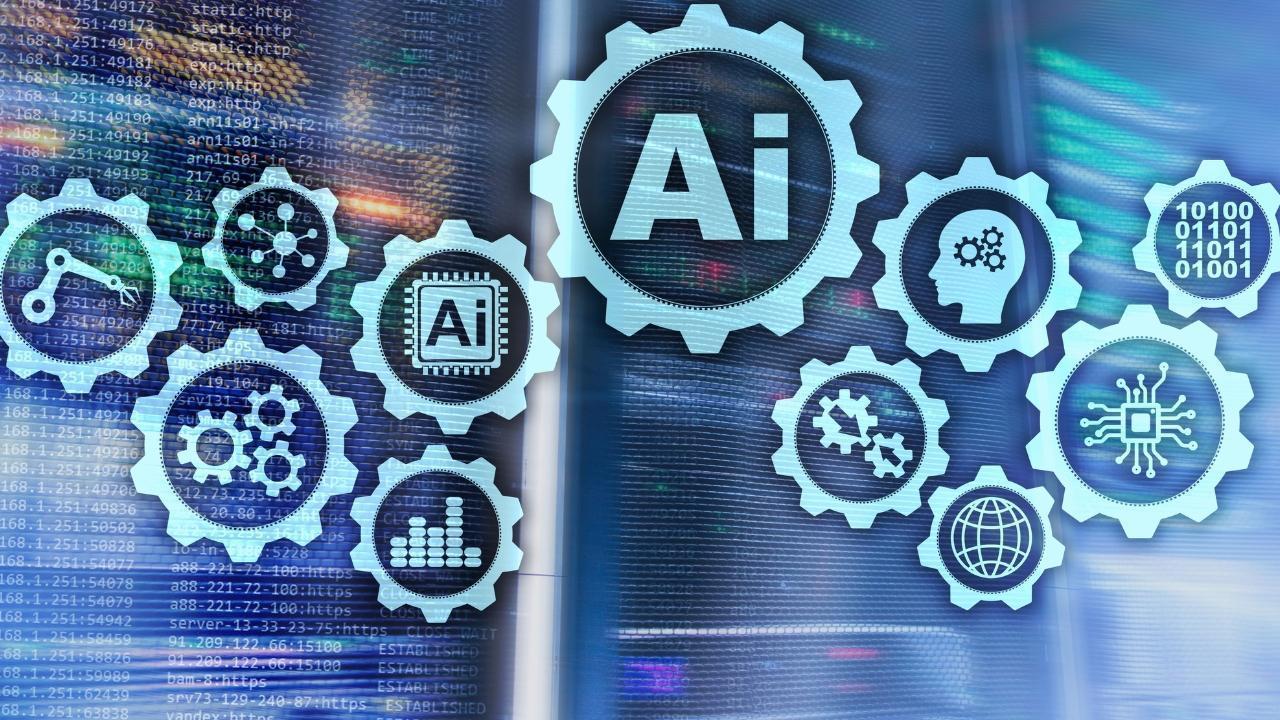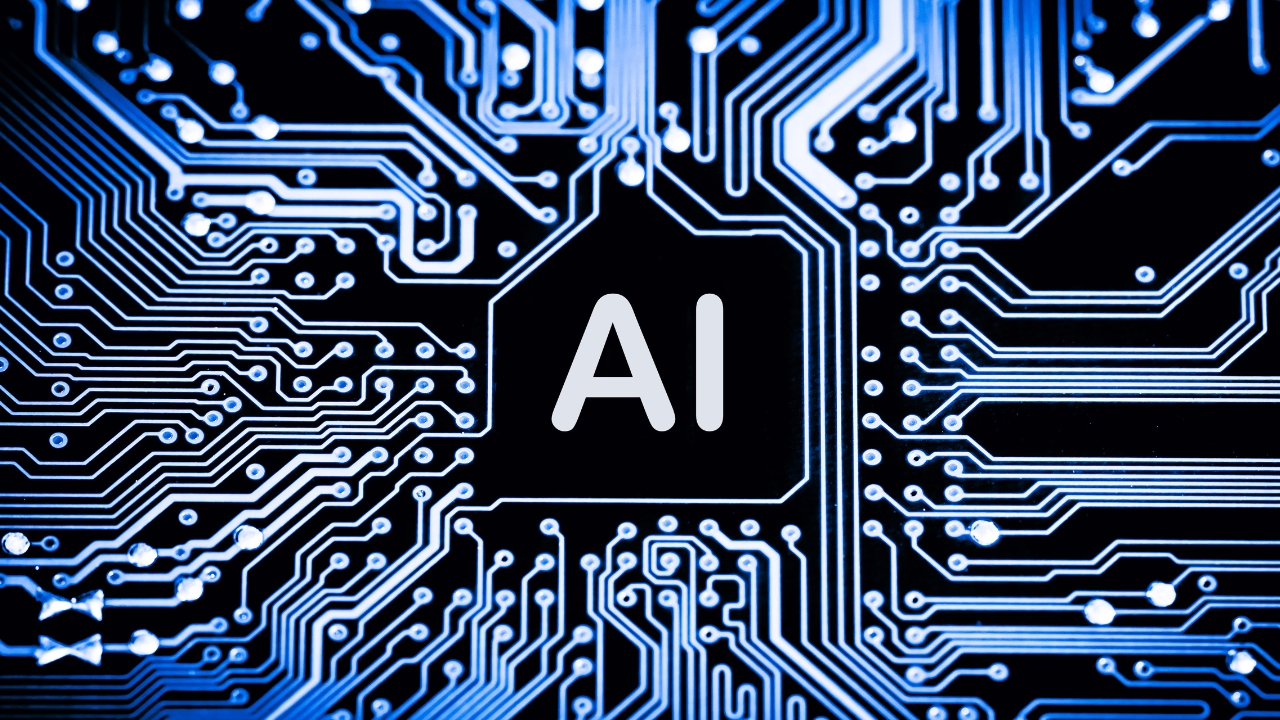
Post by : Dr. Amrinder Singh
Adaptive AI: Transforming Industries Through Real-Time Learning
In today's fast-paced world, Artificial Intelligence (AI) has taken a giant leap forward with the advent of Adaptive AI. This cutting-edge field is like the brain of the future, allowing machines to learn and adapt as they go, just like humans do. It's not just about making calculations anymore; it's about understanding and responding to the ever-changing world around us.
Imagine a world where computers can think on their feet, where they can learn from new information and adjust their actions accordingly. That's the promise of Adaptive AI, and it's already starting to reshape industries worldwide.
Understanding Adaptive AI:
Adaptive AI isn't just about following a set of pre-programmed instructions. It's about machines having the ability to learn and improve over time, much like we do. This means they can analyze data, recognize patterns, and make decisions based on what they've learned. It's like having a virtual brain that gets smarter with each new experience.
The Significance of Adaptive AI:
Think about all the data being generated every second of every day – from social media posts to financial transactions to medical records. It's overwhelming for humans to process all of that information, but Adaptive AI thrives on it. By sifting through mountains of data, Adaptive AI can uncover valuable insights and make predictions that can revolutionize entire industries.
Practical Applications:
The potential applications of Adaptive AI are vast and varied. In healthcare, it can help doctors diagnose diseases earlier and create personalized treatment plans for patients. In finance, it can analyze market trends and make investment decisions with a level of accuracy that was once unimaginable. In education, it can tailor lessons to individual students' needs, helping them learn more effectively.
Benefits for Businesses:
Businesses are already reaping the benefits of Adaptive AI. By using algorithms that can adapt to changing circumstances, companies can streamline operations, improve customer experiences, and stay ahead of the competition. From personalized recommendations to more efficient processes, Adaptive AI is helping businesses of all sizes thrive in today's digital world.
The Future of Adaptive AI:
As technology continues to evolve, so too will Adaptive AI. We're only scratching the surface of what's possible, and the future holds even more exciting developments. From self-driving cars to virtual assistants that understand us better than we understand ourselves, the possibilities are endless.
Decoding Adaptive AI: A Journey into Intelligent Adaptation:
In the vast realm of Artificial Intelligence (AI), there exists a pinnacle of evolution known as Adaptive AI. Picture this: intelligent systems capable of autonomously adapting to changing environments and learning from fresh experiences. It's like having a virtual brain that not only grasps new concepts but also adjusts its behavior accordingly. How does this marvel of technology work, you ask? Let's dive into the depths of Adaptive AI and uncover its inner workings.
At the heart of Adaptive AI lies a diverse toolbox of techniques, each playing a crucial role in its functioning. Machine learning acts as the backbone, enabling systems to ingest vast amounts of data and distill meaningful insights from it. Think of it as teaching a machine to recognize patterns in a sea of information. Neural networks, on the other hand, mimic the human brain's interconnected neurons, allowing for complex decision-making and problem-solving. It's like giving AI its own neural network to process information and make sense of the world.
But the magic doesn't stop there. Predictive analytics swoops in to forecast future outcomes based on historical data, akin to a crystal ball guiding AI in its decision-making journey. And let's not forget about personalization – the cherry on top of the Adaptive AI cake. By tailoring experiences to individual preferences and behaviors, Adaptive AI transforms mundane interactions into personalized journeys, making users feel seen and understood.
Imagine a world where your digital assistant knows your preferences better than you do, effortlessly anticipating your needs and desires. That's the power of Adaptive AI at work. It's like having a virtual companion by your side, guiding you through life's twists and turns with unwavering support and insight.
In essence, Adaptive AI is not just about crunching numbers or executing commands. It's about forging a deeper connection between humans and machines, bridging the gap between data and understanding. It's about creating a world where technology works hand in hand with humanity, enhancing our lives in ways we never thought possible.
So the next time you interact with a recommendation engine, chatbot, or personalized service, take a moment to appreciate the marvels of Adaptive AI. Behind the scenes, a symphony of algorithms is orchestrating a seamless experience tailored just for you. And in that moment, you'll realize that the future of AI isn't just about intelligence – it's about adaptability, empathy, and the endless possibilities that lie ahead.
Importance in Today's World:
In today's fast-paced world flooded with data, Adaptive AI emerges as a game-changer for businesses. Imagine swimming in a sea of information – that's what companies face daily. But with Adaptive AI, they have a trusty lifeboat.
Think of Adaptive AI as a super-smart assistant, capable of diving deep into the ocean of data and bringing back pearls of wisdom. These pearls aren't just shiny trinkets; they're insights that businesses can use to make smarter decisions.
Picture this: You're browsing online, and suddenly, the website suggests exactly what you were looking for. That's Adaptive AI in action, tailoring your experience based on your past behavior. It's like having a personal shopper who knows your taste better than you do.
But it's not just about personalized shopping experiences. Adaptive AI also helps businesses engage with customers on a deeper level. Have you ever received a message from a company that feels like it was written just for you? That's likely the work of Adaptive AI, analyzing data to send the right message to the right person at the right time.
And let's not forget about data-driven decision-making. In the past, businesses might have relied on gut feelings or guesswork. But with Adaptive AI, they can crunch numbers, spot trends, and predict outcomes with uncanny accuracy. It's like having a crystal ball that actually works.
So, why is Adaptive AI so crucial in today's world? Because in a sea of data, it's the compass that guides businesses to success. It's the secret weapon that helps them understand their customers, optimize their operations, and stay ahead of the competition. In short, Adaptive AI isn't just a tool – it's a lifeline for businesses navigating the turbulent waters of the digital age.
Certainly! Let's elaborate on each of these techniques in a unique and accessible manner:
Machine Learning: Think of machine learning as the brainpower behind many digital systems. It's like teaching a computer to recognize patterns and make decisions on its own. For example, when you shop online and see suggestions for other products you might like, that's thanks to machine learning. It also helps in spotting unusual activities in your bank account, like potential fraud, and even powers chatbots that can carry on conversations with you.
Natural Language Processing (NLP): This is all about teaching computers to understand and work with human language. Imagine chatting with a virtual assistant or typing a question into a search engine. NLP helps these systems understand what you're saying and respond in a way that makes sense. It's like teaching a computer to understand your words and intentions, almost like having a conversation with a smart friend.
Predictive Analytics: Predictive analytics is like having a crystal ball for business decisions. It's about using data to make educated guesses about what might happen in the future. For example, businesses can analyze past sales data to predict which products might be popular next season. It's also handy for spotting trends in customer behavior, like who might stop using a service soon, so the business can try to keep them happy.
Personalization: Have you ever noticed how the suggestions on your favorite streaming service seem to know exactly what you want to watch? That's personalization at work. It's like having your own personal shopper or tour guide in the digital world. By analyzing your past behavior and preferences, digital platforms can tailor their content and recommendations just for you, making your experience feel more customized and enjoyable.
Adaptive Testing: Imagine taking a test that adjusts to your abilities in real-time, becoming harder or easier depending on how well you're doing. That's adaptive testing. It's like having a personalized tutor who knows exactly what you need to learn next. This technique is often used in online learning platforms to help students improve their skills efficiently and effectively.
In essence, these techniques form the backbone of Adaptive AI, empowering digital businesses to understand and serve their users better while staying ahead of the competition.
Real-world Applications of Adaptive AI:
Adaptive AI isn't just a buzzword; it's a game-changer across various industries, bringing innovation and efficiency to the table. Let's explore some practical applications that highlight its transformative potential:
Healthcare:
Imagine a world where healthcare isn't one-size-fits-all but tailored to each individual's needs. Adaptive AI makes this possible by analyzing patient data in real-time, from vital signs to medical history. This information isn't just stored; it's utilized to predict potential health issues before they arise. Doctors can then create personalized treatment plans, ensuring patients receive the best possible care.
Finance:
In the financial world, Adaptive AI is like having a supercharged analyst on your team. It sifts through vast amounts of data, spotting trends and anomalies that human analysts might miss. From predicting market fluctuations to identifying fraudulent transactions, Adaptive AI safeguards investments and ensures financial security.
Education:
Every student learns differently, and Adaptive AI recognizes this. By analyzing student performance data, it identifies areas where students struggle and tailors learning materials accordingly. Real-time feedback helps students stay on track, fostering a supportive learning environment where everyone can excel at their own pace.
Transportation:
Picture a city where traffic flows seamlessly, reducing both commute times and frustration. Adaptive AI makes this a reality by analyzing traffic patterns in real-time. Traffic lights adjust dynamically, optimizing the flow of vehicles and minimizing congestion. Public transportation becomes more efficient too, with schedules tailored to meet demand.
Manufacturing:
In the manufacturing sector, efficiency is key, and Adaptive AI is the secret ingredient. By analyzing production data, it identifies opportunities for improvement, whether it's optimizing machine settings or streamlining workflows. This not only reduces waste but also boosts productivity, making manufacturing processes more sustainable and cost-effective.
In essence, Adaptive AI isn't just about technology; it's about transformation. It's about harnessing the power of data to solve real-world problems and make life better for everyone. From personalized healthcare to smoother commutes, Adaptive AI is reshaping industries and paving the way for a brighter future.
Key Advantages of Adaptive AI:
Increased Personalization:
Adaptive AI enables businesses to cater to individual preferences and needs like never before. Think of it as having a personal shopper who knows your taste perfectly. Whether it's suggesting the next book to read, recommending a movie you'll love, or offering products tailored to your interests, Adaptive AI ensures that every interaction feels tailor-made just for you.
Improved User Experience:
Have you ever visited a website that just seemed to understand exactly what you were looking for? That's the magic of Adaptive AI at work. By analyzing your behavior and preferences, Adaptive AI creates seamless and intuitive experiences. It's like having a virtual concierge who anticipates your needs before you even realize them yourself, making every interaction smooth and satisfying.
Enhanced Customer Service:
Gone are the days of waiting on hold for a customer service representative. With Adaptive AI, assistance is just a click away, and it's personalized to your specific issue. Whether it's troubleshooting a technical problem or answering a question about a product, Adaptive AI provides quick, accurate, and tailored solutions, ensuring that customers feel heard and valued.
Increased Efficiency:
Time is money, and Adaptive AI saves plenty of it. By automating repetitive tasks and streamlining processes, businesses can operate more efficiently than ever before. From sorting through mountains of data to optimizing supply chains, Adaptive AI frees up human resources to focus on tasks that require creativity and critical thinking, ultimately driving productivity and innovation.
Better Decision Making:
In today's fast-paced world, making informed decisions is crucial for success. With Adaptive AI, businesses have access to real-time insights and analysis that inform strategic planning and decision-making. Whether it's predicting market trends, identifying opportunities for growth, or mitigating risks, Adaptive AI empowers organizations to stay one step ahead in an ever-changing landscape.
In essence, Adaptive AI is not just about technology; it's about enhancing human experiences, empowering businesses, and driving progress in ways we've only begun to imagine. As this transformative technology continues to evolve, its impact on our lives and society will only grow stronger, ushering in a new era of innovation and possibility.
*Navigating the Ethical Frontier of Adaptive AI:
The horizon of Adaptive AI gleams with promises of monumental advancements, poised to reshape industries and enrich lives in unparalleled ways. Yet, as we embark upon this thrilling journey into the realm of intelligent adaptation, we must not overlook the critical importance of ethics and responsible development.
At its core, Adaptive AI represents a monumental leap forward in artificial intelligence, endowing machines with the remarkable ability to learn, adapt, and evolve over time. This remarkable capability holds boundless potential to revolutionize industries ranging from healthcare to finance, offering solutions to complex problems and unlocking new frontiers of innovation.
However, amidst the excitement and anticipation, it is imperative to pause and reflect on the ethical considerations that accompany the rapid advancement of Adaptive AI. As these intelligent systems become increasingly intertwined with our daily lives, it becomes essential to ensure that they are developed and deployed in a manner that upholds principles of fairness, transparency, and accountability.
One of the foremost ethical concerns surrounding Adaptive AI is the issue of bias. As these systems ingest vast amounts of data to inform their decision-making processes, they run the risk of perpetuating and amplifying existing biases present within the data. Whether it be racial, gender, or socioeconomic biases, the consequences of such biases can have far-reaching implications, reinforcing inequalities and perpetuating injustices.
Moreover, the pervasive influence of Adaptive AI in shaping individual experiences and influencing decision-making processes underscores the importance of transparency and explainability. Users must have a clear understanding of how these systems operate and the factors that influence their recommendations and decisions. Without transparency, trust in these systems may erode, hindering their widespread acceptance and adoption.
Furthermore, the ethical implications of Adaptive AI extend beyond mere technical considerations to encompass broader societal impacts. As these intelligent systems reshape industries and redefine job roles, it becomes imperative to address concerns related to job displacement and the equitable distribution of benefits. Additionally, the potential misuse of Adaptive AI for nefarious purposes underscores the need for robust safeguards and regulations to mitigate risks and safeguard against unintended consequences.
In navigating the ethical frontier of Adaptive AI, it is essential to adopt a multidisciplinary approach that engages stakeholders from diverse backgrounds and perspectives. Collaboration between technologists, ethicists, policymakers, and community representatives can help foster a holistic understanding of the ethical challenges at hand and inform the development of guidelines and frameworks to guide responsible AI deployment.
Ultimately, the future of Adaptive AI holds tremendous promise, offering unparalleled opportunities for innovation, progress, and societal advancement. However, realizing this vision requires a steadfast commitment to ethics, responsibility, and human-centered design. By embracing these principles, we can harness the transformative potential of Adaptive AI to create a future that is not only technologically advanced but also ethically sound and inclusive.
Summary:
The article provides an in-depth exploration of Adaptive AI, a groundbreaking field of artificial intelligence poised to revolutionize industries worldwide. It delves into the core concepts of Adaptive AI, highlighting its ability to learn, adapt, and personalize experiences for users in real-time. Various techniques such as machine learning, natural language processing, and predictive analytics are discussed, along with their practical applications across industries such as healthcare, finance, education, transportation, and manufacturing. The article also emphasizes the key advantages of Adaptive AI, including increased personalization, improved user experience, enhanced customer service, increased efficiency, and better decision-making. Furthermore, it addresses the ethical considerations surrounding the development and deployment of Adaptive AI, stressing the importance of transparency, fairness, and accountability. Overall, the article paints a comprehensive picture of Adaptive AI's transformative potential and underscores the need for responsible development and ethical implementation.
Disclaimer:
DXB News Network strives to provide accurate and informative content to its readers. The article on Adaptive AI is intended for informational purposes only and does not constitute professional advice. Readers are encouraged to conduct further research and consult relevant experts before making any decisions based on the information presented in the article. While every effort has been made to ensure the accuracy and reliability of the content, DXB News Network shall not be held liable for any errors, omissions, or consequences arising from the use of the information provided. Additionally, opinions expressed in the article are those of the author(s) and do not necessarily reflect the views of DXB News Network.

AI Powers Massive ATM Upgrade Across MEASA Airports
MEASA airports invest in AI, ML and Big Data to modernize air traffic systems as global passenger nu

Alysa Liu Wins Olympic Gold in Stunning Comeback
Alysa Liu wins gold at Milano Cortina Games, ending a 20-year U.S. medal drought in women’s figure s

FIFA and Board of Peace Sign Major Deal to Rebuild Gaza Through Football
FIFA and the Board of Peace sign a landmark deal to rebuild Gaza with 50 mini-pitches, a FIFA Academ

Danube Begins Masjid Construction in Dubai Silicon Oasis
Danube Properties starts construction of Rizwan Askerali Sajan Masjid in Dubai Silicon Oasis under i

Sheikh Shakhboot Urges Sudan Ceasefire at Quad Meet
UAE Minister Sheikh Shakhboot calls for urgent Sudan ceasefire and civilian rule during Quad meeting

Japan Core Inflation Hits 2% as Rate Hike Debate Grows
Japan’s core inflation slowed to 2% in January, matching the BOJ target, while a key underlying inde

Abu Dhabi Real Estate Hits AED142bn in 2025
Abu Dhabi records AED142bn in real estate deals in 2025, up 44%, with strong foreign investment and

UAE Gold Prices Today, Monday 16 February 2026: Dubai & Abu Dhabi Updated Rates
Gold prices in UAE on 16 Feb 2026 updated: 24K around AED 599.75/gm, 22K AED 555.25/gm, and 18K AED

Over 25 Ahmedabad Schools Receive Bomb Threat Email, Authorities Investigate
More than 25 schools in Ahmedabad evacuated after bomb threat emails mentioning Khalistan. Authoriti

Ukraine Ex-Energy Minister Arrested in Corruption Case
Ukraine’s anti-corruption agency NABU arrested former Energy Minister German Galushchenko while he t

Toxic: A Fairy Tale for Grown-Ups set for worldwide release on March 19, 2026
Toxic: A Fairy Tale for Grown-Ups starring Yash releases worldwide on March 19, 2026, with festive t

Suryakumar Dedicates T20 World Cup Win as India Crush Pakistan by 61 Runs
India defeated Pakistan by 61 runs in the T20 World Cup. Suryakumar Yadav praised Ishan Kishan’s 77

Dhurandhar 2 set to storm theatres on March 19, 2026
Dhurandhar 2, titled Dhurandhar: The Revenge, releases in theatres on March 19, 2026 with a pan-Indi

Dubai Games 2026 Concludes Celebrating Teamwork and Triumph
Dubai Games 2026 ends with Ajman Government, F3, and Czarny Dunajec winning top titles as 1,600 athl

Sheikh Hamdan Honours Arab Hope Maker with AED3 Million Awards
Sheikh Hamdan crowns Fouzia Mahmoudi Arab Hope Maker, awarding AED3 million to top finalists for hum